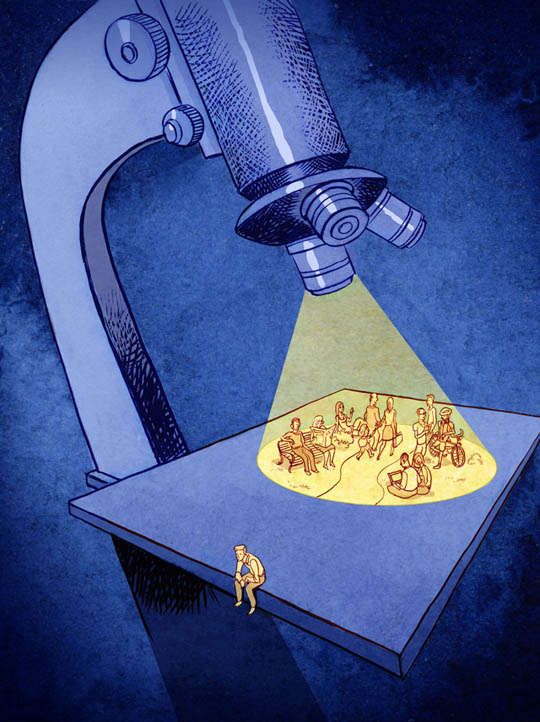Learning disabilities are invisible. They will often not appear in the form of physical symptoms. However, they are much more present than we think they are. Your child, sister, or brother will not be the first person to struggle academically or socially, nor will they be the last. The main point of this article is that they shouldn’t have to.
“Allowing a student with a hidden disability (ADHD, Anxiety, Dyslexia) to struggle academically or socially when all that is needed for success are appropriate accommodations and explicit instruction is no different than failing to provide a ramp for a person in a wheelchair”.
This quote is by Joe Becigneul, board chair at the Greater St Albert Catholic Schools in Alberta, Canada, and I think it couldn’t be more true.
Important note: LDs are not associated with lower intelligence!
Learning Disabilities (LDs) refer to a group of heterogeneous disorders which may affect the acquisition, organization, retention, and understanding, or use of verbal or nonverbal information (Al-Mahrezi et al, 2016), which disorder may manifest itself in imperfect ability to listen, think, speak, read, write, spell or do mathematical calculation (Matejcek, 1977).
The most talked-about LD is Dyslexia, which involves difficulty reading. But, it is very important to know that dyslexia is not the only one. Not all LDs are labeled and categorized. Any cognitive function, if not doing its job, can hinder a child’s ability to learn and properly express what they know.
Memory, for instance, has a fundamental role when it comes to so many skills involved in learning. In fact, most research on Working Memory and Learning has demonstrated relations among these two components (Alloway et al, 2009). Problems in Working Memory can lead to difficulties in learning because the individual may have less space and capacity for organizing and integrating new skills or knowledge, which tends to affect the individual’s ability to follow directions, organize thoughts for speaking and writing, and learn multi-step procedures or process information quickly.
Memory helps them remember the way the letters should be, as well as the sounds associated with each letter, so that they can remember how the words are read and spelled. Furthermore, visual memory allows children to remember how the letters of the alphabet are formed, which is why dyslexic children require a lot of visual memory training.
Moreover, selective attention enables us to limit the number of stimuli that we process at any one time; without it, we would be overwhelmed by stimulation. Thus, if selective attention isn’t functioning properly, the child will have trouble learning (Vance, 1980). This is the case for some of the children who have ADD or ADHD (Attention Deficit Hyperactivity Disorder).
Children may struggle with reasoning, making inferences and reaching conclusions based on cues, or organizing their thoughts in order to express themselves coherently. Not all of these concerns have catalogue names, but they exist. They all fall under the LDs umbrella term.
Do you think your child may be struggling in school?
Help is Available!
There are places in Egypt specialized in assessing children and providing them with the necessary assistance that they need, such as the Effective Learning Foundation (ELF) and the Learning Resource Center (LRC), both with branches located throughout Cairo.
There are several kinds of help!
Learning Skills Development or Remedial Tutoring
Basically, this is a kind of Special Education that offers “compensatory methods” to make up for any gaps or impairments regarding a child’s academic skills, whether it be trouble reading, writing, memory, attention, amongst others.
The goal of Learning Skills Development (LSD) is to ensure that the child can keep up with the academic level taught in the classroom.
Sensory Motor Services such as Occupational Therapy
Helpful for those with LDs, but also for children with developmental delays and physical disabilities. OT focuses on fine-motor skills, hand-eye coordination, self-help skills and sensory and attentional concerns.
Speech and Language Therapy
Provided to children who struggle with communicating, and/or speech and language, such as stuttering and inability to pronounce certain sounds.
Cognitive Therapy
Aims to develop the child’s cognitive abilities, such as reasoning, processing, memory, and attention. CT is often very helpful to children with developmental delays and children on the autism spectrum.
And many more.
Remember, your children do not have to struggle, and do not have to stay behind. There are so many ways to help them excel and reach their full potential. You just have to help break down the barriers to their learning. The more we talk about these difficulties the less the children affected by them will be stigmatized, and the more the parents will seek help for them, and schools will offer the necessary accommodations.
——
References
Alloway, T. P., Elliot, J., Gathercole, l., & Kirkwood, H. (2009). The Cognitive and Behavioral Characteristics of Children With Low Working Memor. Child Development, Vol. 80, No. 2, 606-621.
Al-Mahrezi, A., Al-Futaisi, A., & Al-Mamari, a. W. (2016). Learning Disabilities Opportunities and challenges in Oman.
Becigneul, J. (n.d.). Retrieved from https://www.gsacrd.ab.ca/trustees/meet-your-trustees2/joe-becigneul
Effective Learning Foundation. (n.d.). Programmes . Retrieved from http://elf-egypt.com/
MATĚJČEK, Z. (1977). SPECIFIC LEARNING DISABILITIES. International Journal of Mental Health.
Vance, H. B. (1980). ATTENTIONAL DEFICITS AND LEARNING DISABILITIES. Education and Treatment of Children, Vol. 3, No. 2, 153-160.
——
Feel free to subscribe to our weekly newsletter to get the latest releases on all our articles & episodes for our exclusive mental health podcast series, with celebrity guests sharing their take on Mental Health and Wellbeing.
Available Now on Apple Podcasts & Anghami








